 Here are some shiny things that caught my eye recently:
Here are some shiny things that caught my eye recently:
♦ More sad news last week: iconic author Ray Bradbury died June 5th at the age of 91. The interwebs were ablaze with appreciations, essays, obituaries, reflections and tributes, the following being just a sample: Margaret Atwood, The Beat, Gregory Benford, BookRiot, John Crowley, Junot Díaz, Neil Gaiman (also, the introduction he wrote to an edition of Bradbury’s The Machineries of Joy; he also posted a recording of his reading “The Man Who Forgot Ray Bradbury,” a short story), Theodora Goss, io9, LitReactor, Locus, The Los Angeles Times, Will Ludwigsen, Nick Mamatas, Adam Mills, The New York Times (also, the essay “Uncle Ray’s Dystopia“), President Obama, SF Signal (“The Bradbury Effect > The Amazon Effect”), Time, Tor.com (also, a gallery of some of Bradbury’s book covers), Underwords, Jeff VanderMeer, The Washington Post, Chuck Wendig, and Ian Withrow. The New Yorker‘s science-fiction issue included an essay by Bradbury, “Take Me Home,” and io9 shared some letters from Bradbury “that show his passion for writing, but most of all his generosity to his readers.”
Lots of Bradbury quotations popped up, too, like “Looking back over a lifetime, you see that love was the answer to everything.” And these:
Like most writers in my field, I was a fan of Bradbury’s work, particularly Something Wicked This Way Comes (also the film version), The Halloween Tree, Fahrenheit 451, and From the Dust Returned. I was a devout watcher of The Ray Bradbury Theater. I met him once, when I was in college. I had presented a paper at NCUR in Pasadena in March of 1991, and Bradbury was the keynote speaker. After his talk, I stood in the long line of my very first book signing to ask him to sign two books for me, a beautiful edition of Something Wicked This Way Comes for me and another of his books (I’m afraid I can’t remember which–perhaps Dandelion Wine?) for my adviser, Marian Cusac. He was very gracious.
♦ Let’s look at some bookshelves.
 I don’t know how to embed the link, but check out this short video of a sculptural painting by Patrick Hughes called Paradoxymoron—pretty cool.
I don’t know how to embed the link, but check out this short video of a sculptural painting by Patrick Hughes called Paradoxymoron—pretty cool.
I’d like a whole room of these backlit shelves, floor to ceiling. Click here to see them unlit.
♦ Book Nook.
You can read “There Will Come Soft Rains,” one of Ray Bradbury’s short stories, at Cosmos.
This past week AlphaBooks, an alphabetical tumblr exploration of fictional characters curated by Ben Towle, has moved to the C’s. Some fine art there, but I think “C is for Carrie” by Sam Wolk, based of course on Stephen King’s novel, might be my favorite:
Want a sneak peek of the first book in Lemony Snicket’s new autobiographical series, All the Wrong Questions? Check out the first chapter from “Who Could That Be at This Hour?”
Catherynne M. Valente penned a love letter to libraries.
For Fara:
Enjoy “The Witch of Duva: A Ravkan Folk Tale,” a companion tale to Shadow and Bone, Leigh Bardugo‘s debut novel.
Natasha Tethewey was named the U.S. poet laureate. Here’s a video of her reading “Liturgy,” a poem from Beyond Katrina.
LitReactor had a useful post about tracking information that matters for readers.
The French cover of Neil Gaiman’s Fragile Things:
The great Geoff Ryman’s story “Blocked” is reprinted in the June issue of Apex.
My friend Bonnie Zare has just been named the editor of the International Feminisms section of Ultra Violet: Indian Feminists Unplugged. Her first article, “Ending Son Preference One Girl at a Time,” is a fascinating read.
For Cameron:
♦ Some new art:
♦ Viewing Paradise.
I had no idea there was a Mr. Peabody and Sherman movie afoot.
I like this trailer for the upcoming adaptation of The Perks of Being a Wallflower—I hope the movie doesn’t disappoint.
Tor.com had a re-watch analysis of one of my most favorite episodes of Star Trek: The Next Generation: “Darmok” (even with its many flaws, it might be my most favorite).
I’ve not seen Snow White and the Huntsman (SWATH) yet, though I’ve read reviews from both ends of the spectrum. One of my biggest concerns about the film seem to have been true: the focus isn’t on Charlize Theron’s wicked queen, which is a crushing disappointment, no matter how expected. If you don’t want to watch SWATH but you want to know what all the fuss is about, Tor.com gave a super-spoilerific review in So…Did You Understand Snow White and the Huntsman? (lots of questions about the world-building). Once Upon a Blog had an insightful essay about Letting Fairy Tales Live (A Fairy-Tale Enthusiast’s Dilemma), which gets to the heart of the matter: fairy-tale enthusiasts are often disappointed with the way Hollywood treats the subject matter (Hollywood being interested primarily in making money rather than a respectful use of the fairy-tale source material), but fairy tales continue to exist because they belong to everyone and can be adapted by anyone. One last article: a Smithsonian.com interview with esteemed fairy-tale scholar Jack Zipes, and his brief review of SWATH isn’t good:
This movie represents a backlash to the feminist movement. Once Upon a Time, Mirror Mirror—those shows and films focus on women and their conflict with one another. What the heck is going on in contemporary fairy tales? Women are not dominating the world; they are not evil. Why are we redoing the Grimm tales in a retroactive way that doesn’t understand the complex problems women have today? These films have nothing to say to the world today.
Ouch! I’ll get around to watching it at some point.
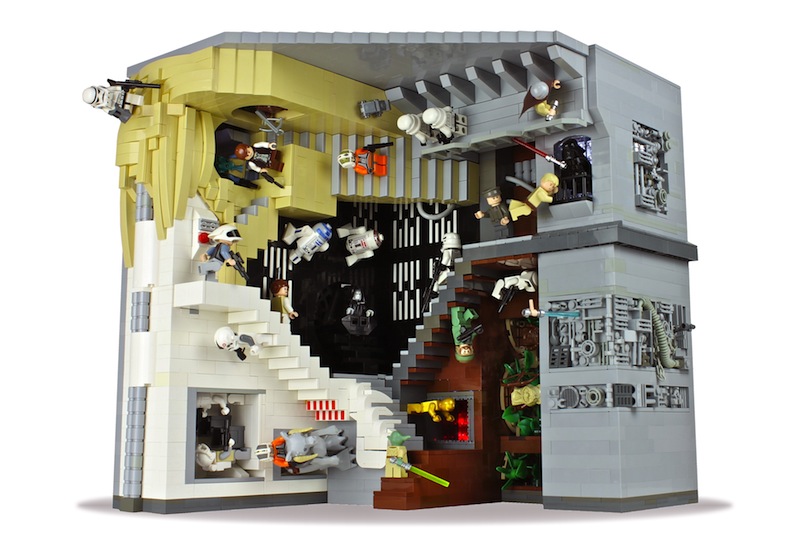 ♦ io9 had a slew of articles last week that I had to read, most of which are pretty grim: The LEGO Star Wars M.C. Escher Diorama Defines Awesome (this, obviously, is not a grim article); The Ladies’ Deposit: Created by Women for Ripping Off Women; The Stress of Being Bisexual Drives Young People to Drink; Before Environmental Regulations, Pittsburgh Looked Like the Capital of Hell (my mom did some of her nurse’s training in Pittsburgh in the ’60s—she said the haze was so dense that the streetlights came on at noon); The Overwhelming Weirdness of 1800s Ghost Mother Photography; Why You Probably Won’t Experience Your Own Traumatic Death; People Who Survived Brushes with Death (and How They Did It)—some good research for writers, too; Should We Eliminate Psychopaths from the Gene Pool?; and Spend a Lovely Day with the Kids at Thailand’s Hell Torture Theme Park (I would totally go to this theme park).
♦ io9 had a slew of articles last week that I had to read, most of which are pretty grim: The LEGO Star Wars M.C. Escher Diorama Defines Awesome (this, obviously, is not a grim article); The Ladies’ Deposit: Created by Women for Ripping Off Women; The Stress of Being Bisexual Drives Young People to Drink; Before Environmental Regulations, Pittsburgh Looked Like the Capital of Hell (my mom did some of her nurse’s training in Pittsburgh in the ’60s—she said the haze was so dense that the streetlights came on at noon); The Overwhelming Weirdness of 1800s Ghost Mother Photography; Why You Probably Won’t Experience Your Own Traumatic Death; People Who Survived Brushes with Death (and How They Did It)—some good research for writers, too; Should We Eliminate Psychopaths from the Gene Pool?; and Spend a Lovely Day with the Kids at Thailand’s Hell Torture Theme Park (I would totally go to this theme park).
To lighten the mood, check out this xkcd cartoon about college laundry habits!
♦ Writers’ Corner.
Chuck Wendig offers 25 ways to fight your story’s mushy middle. He also answers the question, “What’s the secret to writing?”
LitReactor posts about excusing the bad behavior of authors. Also, LitReactor’s Storyville discussed writing horror stories.
Laura sent me the link to McSweeney’s “The Ultimate Guide to Writing Better than You Normally Do,” which absolutely cracked me up. Do go and read it.
Daily Writing Tips had a great post about the reading level of your writing (via) which included a link to an online readability-index calculator based on the Flesch-Kinkaid Reading Ease continuum (“a scale of 0-100 in which the lower the score, the more sophisticated the language”) and the Flesch-Kinkaid Reading Level (“reflects the grade level the reader must ostensibly have reached to be able to comprehend the material, from 0 [kindergarten] and beyond 12 [high school senior year] to undergraduate and graduate levels”). So I plugged in some stories that I wrote, a children’s story (which had a grade level of 5 and a reading ease score of 76) and a couple of adult stories (which averaged a grade level of 8 and a reading ease score of 65). Conversely, one of my academic essays had a grade level of 16 and a reading ease score of 33 and another had a grade level of 17 and a reading ease score of 26. I think this is good? Or maybe it’s terrible? Still fascinating, regardless.
You don’t need an undergraduate nor a graduate degree in creative writing to be a writer (yes, he who has an MFA and directs an undergraduate creative writing program just said that). Workshops can be a valuable tool for some writers, and they happen outside of degree programs all the time. You might find this post about making the most of writers’ workshops useful.
♦ Delightful. Just delightful.
♦ Also delightful: this remix of Mister Rogers by John D. Boswell (of the Symphony of Science) and PBS has been blowing up the internet, and I’m happy to contribute to the explosion. I have to ask, though: is the Garden of Your Mind next to your Memory Palace?
♦ When I feel a bit oppressed by the dire situations in the world (and more locally), I’m going to reread this post by Terri Windling about That for Which We Are Designed and remember this bit she quotes from Alistair Cooke:
In the best of times, our days are numbered anyway. So it would be a crime against nature for any generation to take the world crisis so solemnly that it put off enjoying those things for which we were designed in the first place: the opportunity to do good work, to enjoy friends, to fall in love, to hit a ball, and to bounce a baby.


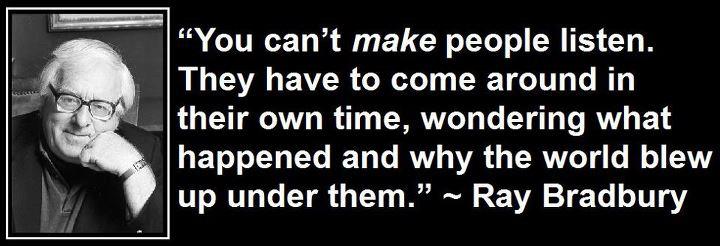
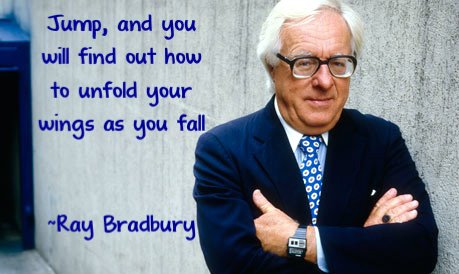



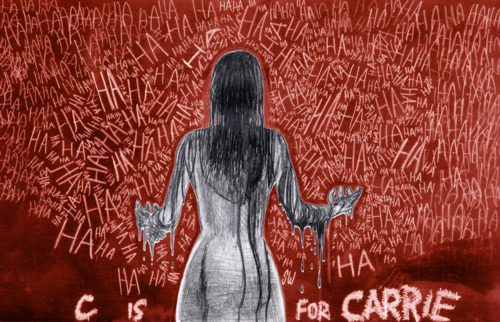

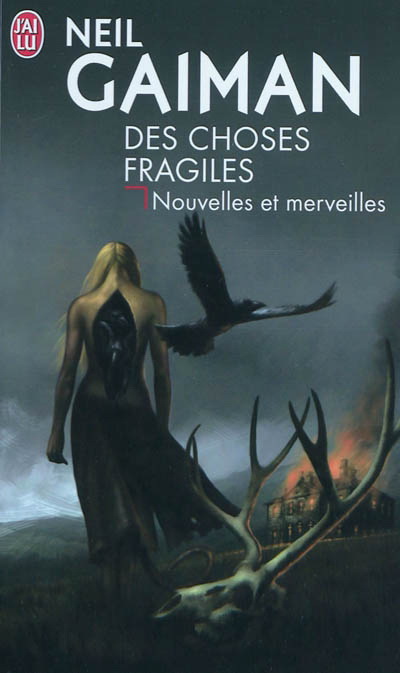
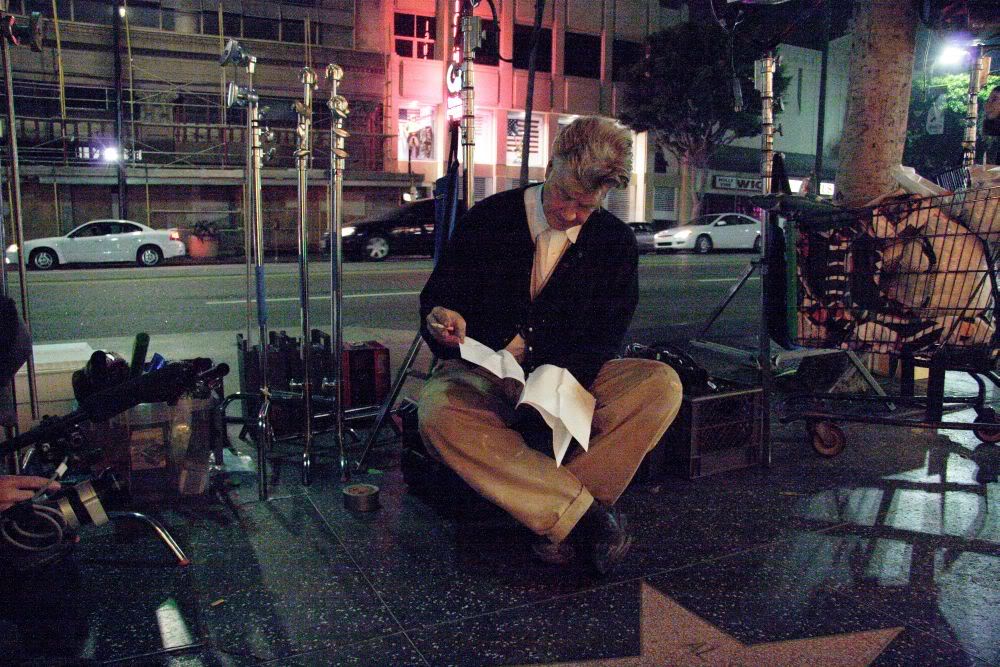










OHHH – Lovely lovely lovely post (and thank you for the awesome AR pic! What’s not to love about him???)
Beautiful bookcases as always. So – how long did this very thorough post take to write? Kudos on that!
I think this post took about five hours, give or take. I’m glad you liked the Rickman picture!
Great post, Robert. I love your Magpie Mondays! 🙂 Thanks for the mention.